6. Life is a Miracle (2004)
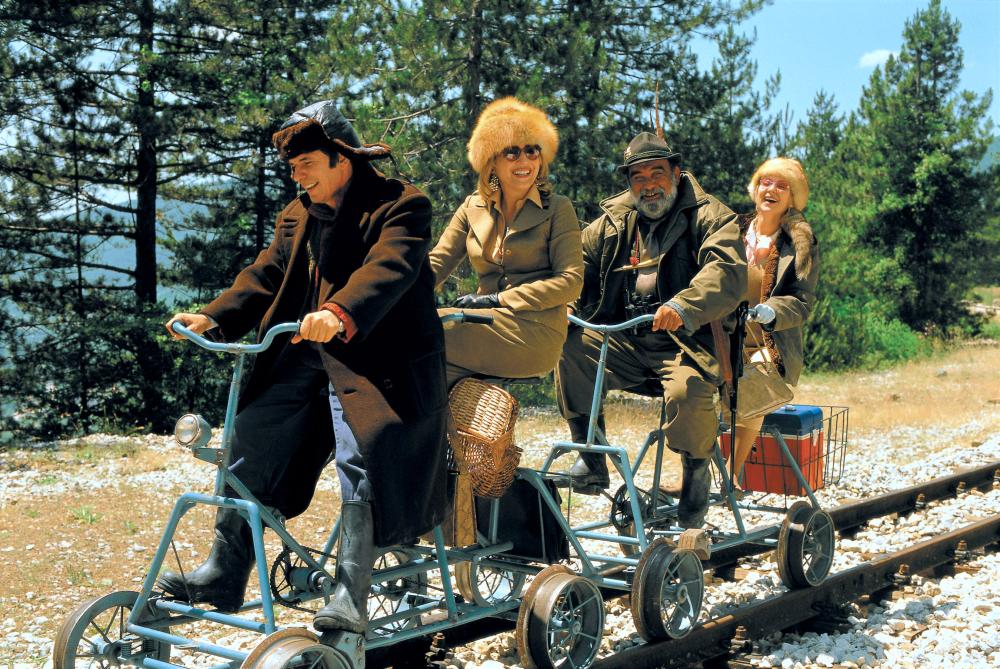
Kusturica here explores the Bosnia War and the history of Yugoslavia. This loud film with people swinging in madness and animals (like bears and donkeys) dancing is entertaining.
As the title suggests, beyond the exploration of war and history, the movie is in essence about the miracle of existence. Its exaggerated histrionics are but devices to communicate the joys and pains of living. The railway engineer, Luka (Slavko Stimac), struggles between love and family, wanders among false choices and possibilities of justice, standing in the middle of his lover, a free-spirited Muslim nurse, and his football-loving son. Life is a Miracle is ultimately a chaotic moral story.
It may be true that the film is in a continuous state of ecstasy, consisting waves and torrents of madness. This can be counted as the work’s biggest flaw. Yet, it is the necessary approach because Kusturica tries to capture the consciousness of war, which is fragmented and fierce.
5. Arizona Dream (1993)
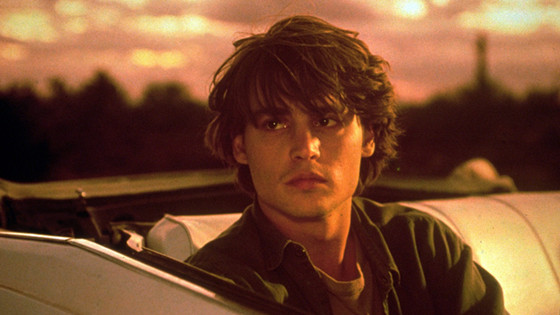
Starring Johnny Depp, Faye Dunaway, and Jerry Lewis, this gem from the early nineties has big-name celebrities familiar to English-speaking audience. By Hollywood standard, this is not a weird film—a weird film at the time may be popular, perhaps in France, like David Lynch’s Wild at Heart. No, this film is more than weird: it is mad. No wonder it has not been particularly popular, receiving only a limited release in the U.S. in 1994.
Consider parts of the story: Axel Blackmar (Johnny Depp) likes talking to fish, he struggles with live a normal life, he drifts around in search of meaning; he falls in love with Elaine Stalker (Faye Dunaway), who always wants to fly, thus, to please her, he builds flying machines. Characters then go mad, recover, go mad again. There are thunderstorms, legs tangling under tables, Russian roulette. Some of the characters finally discover some meanings in life, some die before they do.
Arizona Dream is not a great masterpiece like the following four films in this list. However, it is close. Like Werner Herzog’s films, such as Stroszek (1977), no audience can possibly guess what bizarre event follows scene after scene. Stuffed with philosophical mumblings and intense lovers gazing at each other, this is a very unique experience.
It is a near-masterwork. The film resembles more to a dream than to any other movie. There are sequences in which a giant fish swim across the city air among the lonely, good-looking characters. If a movie-goer wants to experience true strangeness, Arizona Dream is more than worth-while.
4. Black Cat, White Cat (1998)
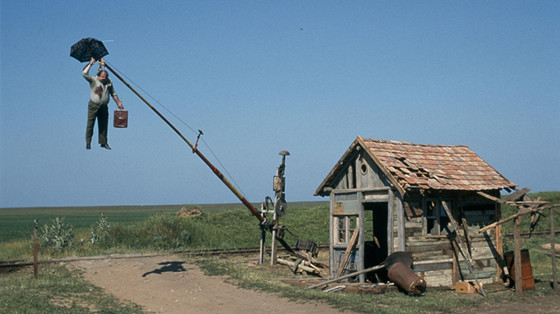
The Serbian director’s most heart-warming film, Black Cat, White Cat, is a celebration of humanity. This may well be the noisiest movie of Kusturica’s filmography, with people yelling in joy and fear, with ceilings being torn down, with brass bands being brought into a hospital room.
The exuberant film may not match everyone’s taste because it is very much like a circus show. The plot mainly concerns a father tries to pay back debts by forcing his son to marry a gangster’s sister, young people falling in love, and an old man sacrificing himself for his grandson. It is crazy.
The title is quite irrelevant, matching the film’s out-of-the-world tone. Everyone is in some kind of trouble, yet by the end, they all somehow find resolution and happiness. Even the villain, played joyously by Srdjan Todorovic, is quite lovable.
This may be Kusturica’s most enjoyable movie, full of faith in love and familial relationship. Unlike most of his other works, this film is independent of Yugoslavian and Serbian history. It is one of the best comedies ever made.
3. When Father Was Away On Business (1985)
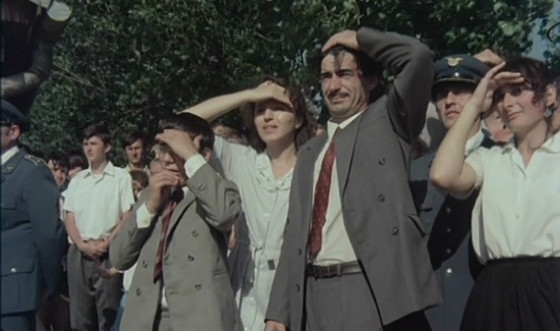
One of Kusturica’s less-seen features, it put him to international attention back in the 1980s. Winning the Palm d’Or, it is fair to say this film is the director’s first masterpiece.
Fans familiar with Kusturica’s later style would expect from his films blasting music, obsessive close-ups of animals, and surreal plots. When Father Was Away On Business offers none of these. The work is indeed one of his most conventional motion pictures, exploring the everyday life under the communist regime.
Following a child’s first-person narration, spanning over episodes of surveillance, sleep-walking, and bittersweet first-love, the movie is a portrait of Yugoslavian life in the mid-twentieth century with deep traits of sympathy and understanding.
Above all, this is a coming-of-age movie, a caricature of individuals growing up surrounded by historical events. This film is also about family, forgiveness, and the power of hope under scenes of oppression. In the final scene, the audience views the sleepwalking child ascending onto the air, giving hopeful hints of future brightness.
2. Underground (1995)
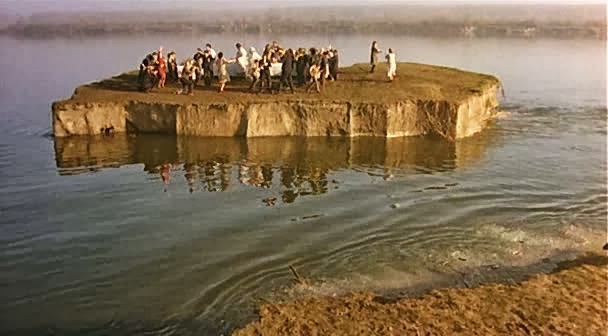
This ambitious film deals with Yugoslavia. Although all characters in it are unique, this work is not about people. Underground is about how a country is made and how a country dies. The tunnel truck driver’s utterance, “Yugoslavia? There is no more Yugoslavia.” may be one of the most political lines ever captured in the film medium.
The film depicts not only the tragedy of a people, it is about the death of a nation. War is a tragedy, the disintegration of a country is something more complex. As a result, Kusturica thinks that the carnivalesque is the only way to deal with this complex Yugoslavian problem.
Like Fellini’s works (particularly Eight and a Half and Fellini Satyricon), brass bands and hysterical dances and over-the-top actings populate this movie. Yet the sound and the fury is never tiring, its tone varies over the historical periods like a symphony shifting its cacophonies.
Underground is ultimately political. Some say it is a nationalist picture, a propaganda without a veil. Some say this is an exploration of history at its forefront—the Yugoslavian war was still happening as this film premiered. But most of us can agree this is a deliciously made entertainment while being at the same time and an ambiguous statement on war, humanity, and the nation.
Many people would probably put this film at the top of Kusturica’s films. The main reason it is at the second place here is the film’s incompleteness, and consequently, its (perhaps intensional) fragmented tone. Fans of the movie should seek out the complete TV version entitled Once Upon a Time There Was a Country (1995), approved by Kusturica, in which characters are developed in more depth, and the plot is explained in lucid detail.
1. Time of the Gypsies (1988)
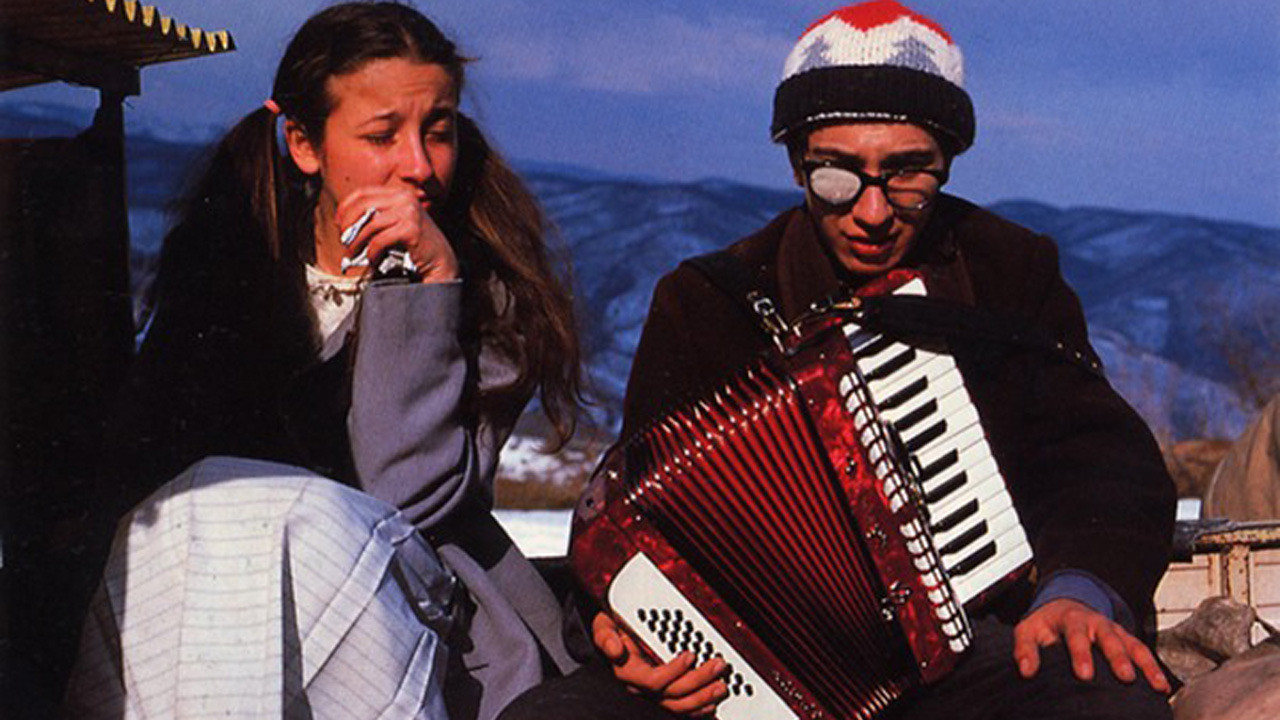
This is a crowning achievement of world cinema. The film is a coming-of-age story, a folk-tale, a Homeric epic, a farce, a family drama, a love story, a study of evil, a revenge tragedy—all rolled into one with magnificent skills and perfection.
The work follows a young Gypsy through moral transgressions, redemption, and vengeance. The audience witnesses him falls in love, attempts suicide, descends into crime, uses superpower like X-Men’s Magneto, make mistakes and amends. The canvas is vast and the plot is expansive, defying summarization.
Time of the Gypsies is not a movie, it is not just an experience, it contains a world and along with it many unforgettable human beings. Roger Ebert thinks that The Godfather is a great film because it allows the audience to glimpse into an alien world, to be with a group of people one is not used to, to live for some brief moments an alive and alluring existence that no one can refuse to explore.
With this motion picture, the audience is plunged into the world and time of the gypsies: feeling their emotions, living their lives, caring and finding their own place in the universe. The strangeness of the gypsies may persist even after viewing the film, but we will never again see the gypsies as the others, but rather as breathing human beings.
If there is a Kusturica film (or any film in the history of cinema, for that matter) can make us better people, this is it.
Author Bio: Alvin Chung is an aspiring writer and filmmaker. He studies Media and Communications at the University of Sydney.